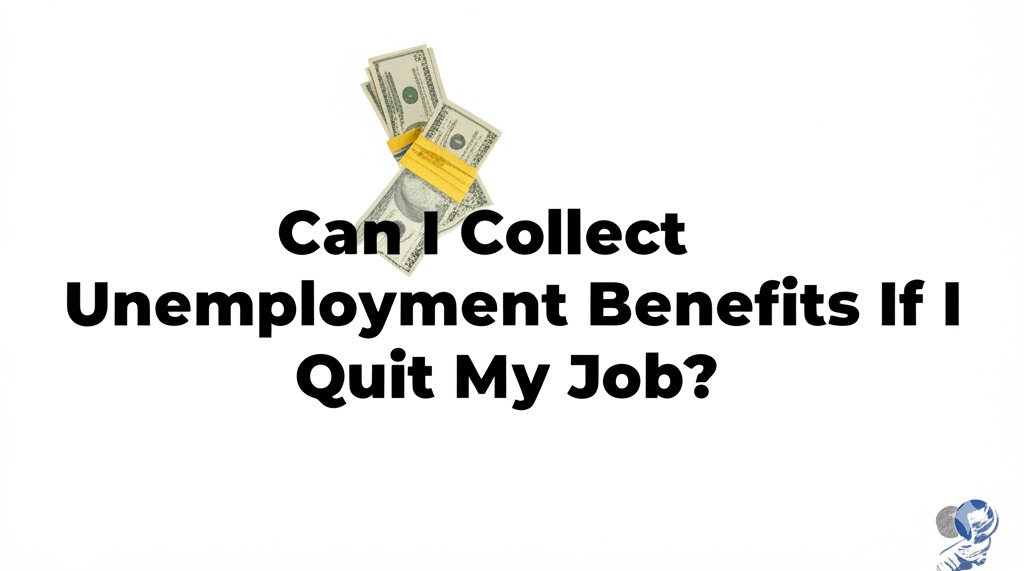
Quitting your job is a big decision. Whether you’re burned out, relocating, or dealing with a toxic work environment, you may wonder: Can I collect unemployment benefits if I quit my job? It’s a common question—and the answer isn’t always straightforward.
In this article, we’ll break down when you can and can’t collect unemployment after quitting, explain the exceptions, and guide you through how to improve your chances of qualifying. Let’s dive in.
Understanding Unemployment Benefits
Before we dig into the specifics, it helps to understand how unemployment benefits work.
Unemployment insurance (UI) is a program funded by employers and managed at the state level. Its primary goal is to provide temporary financial assistance to individuals who are unemployed through no fault of their own.
Typically, you’re eligible if you:
- Were laid off or had your hours significantly reduced
- Meet your state’s minimum earnings or work history requirements
- Are actively seeking new employment
But what happens if you voluntarily leave your job?
Can You Get Unemployment If You Quit?
The general rule is: If you quit your job voluntarily, you usually aren’t eligible for unemployment benefits. But (and it’s a big but)—there are important exceptions.
When Quitting Disqualifies You
If you quit for reasons such as:
- Wanting a career change
- Not liking your boss
- Feeling bored or unchallenged
- Pursuing further education
…then you likely won’t qualify. These are considered personal reasons that do not meet the “good cause” standard set by most state agencies.
Exceptions: When You Can Collect Unemployment After Quitting
There are several situations where quitting might still qualify you for unemployment benefits. These exceptions are called “good cause” quits.
1. Hostile or Unsafe Work Environment
If your workplace is hostile, abusive, or unsafe, and you’ve made attempts to resolve the issue, you may be eligible. This includes:
- Harassment or discrimination
- Unsafe working conditions
- Repeated violations of labor laws
💡 Tip: Keep documentation of any complaints you’ve made or HR reports filed.
2. Medical Reasons
If a physical or mental health condition prevents you from performing your job—and you’ve notified your employer or sought accommodations—you may have a valid reason to quit.
Make sure to:
- Get a doctor’s note
- Inform your employer in writing
- Attempt reasonable accommodations if possible
3. Domestic Violence or Family Issues
Some states allow you to quit and still receive benefits if you’re fleeing domestic violence or have family caregiving obligations that make continued employment impossible.
4. Moving with a Spouse or Military Transfer
Relocating due to a spouse’s job transfer or military deployment may also be considered good cause in many states.
How to Prove “Good Cause” to the State
Each state has its own definition of “good cause,” so you’ll need to provide evidence and file a claim explaining your situation clearly.
Gather Your Documentation
Depending on your reason for quitting, collect:
- Doctor’s notes or medical records
- Emails or HR communications
- Witness statements
- Police reports (in cases of domestic abuse)
- Proof of relocation or spouse’s transfer
Be Honest and Clear
When filing your claim, explain your circumstances honestly and in detail. If you left due to harassment, say so directly and support your claim with facts.
💬 State agencies often conduct interviews or request additional details—be ready to respond.
State-by-State Differences
Unemployment eligibility varies by state. For example:
- California tends to be more lenient about medical and family-related quits.
- Texas is stricter, typically requiring extensive proof.
- New York may approve claims due to workplace harassment or health issues.
👉 Visit your state’s Department of Labor website to learn their specific guidelines.
What to Expect After Filing
Once you file:
- Your claim will be reviewed.
- You may have to participate in a phone interview.
- Your employer may be contacted for their side of the story.
- A decision will be made—usually within a few weeks.
If you’re approved, benefits usually begin from your last working day (after a waiting week in many states).
If You’re Denied…
You have the right to appeal the decision. Be prepared to:
- Submit additional documents
- Attend a hearing (phone or in person)
- Possibly present witnesses
Alternatives If You Don’t Qualify
If your claim is denied, don’t panic—there are other options to help while you search for a new job.
Consider:
- Freelance or gig work to bridge the gap
- Temporary staffing agencies
- Local food and housing assistance programs
- Retraining or certification programs in high-demand fields
Final Thoughts: Know Your Rights and Options
So, can you collect unemployment if you quit your job? The answer is: Sometimes, yes—if you have good cause.
Don’t assume you’re out of options just because you quit. If your reason is legitimate and you can back it up with documentation, you may be entitled to benefits.

Andre Cuevas provides career insights, job search strategies, and professional advice to help individuals navigate the job market and achieve their career goals.






